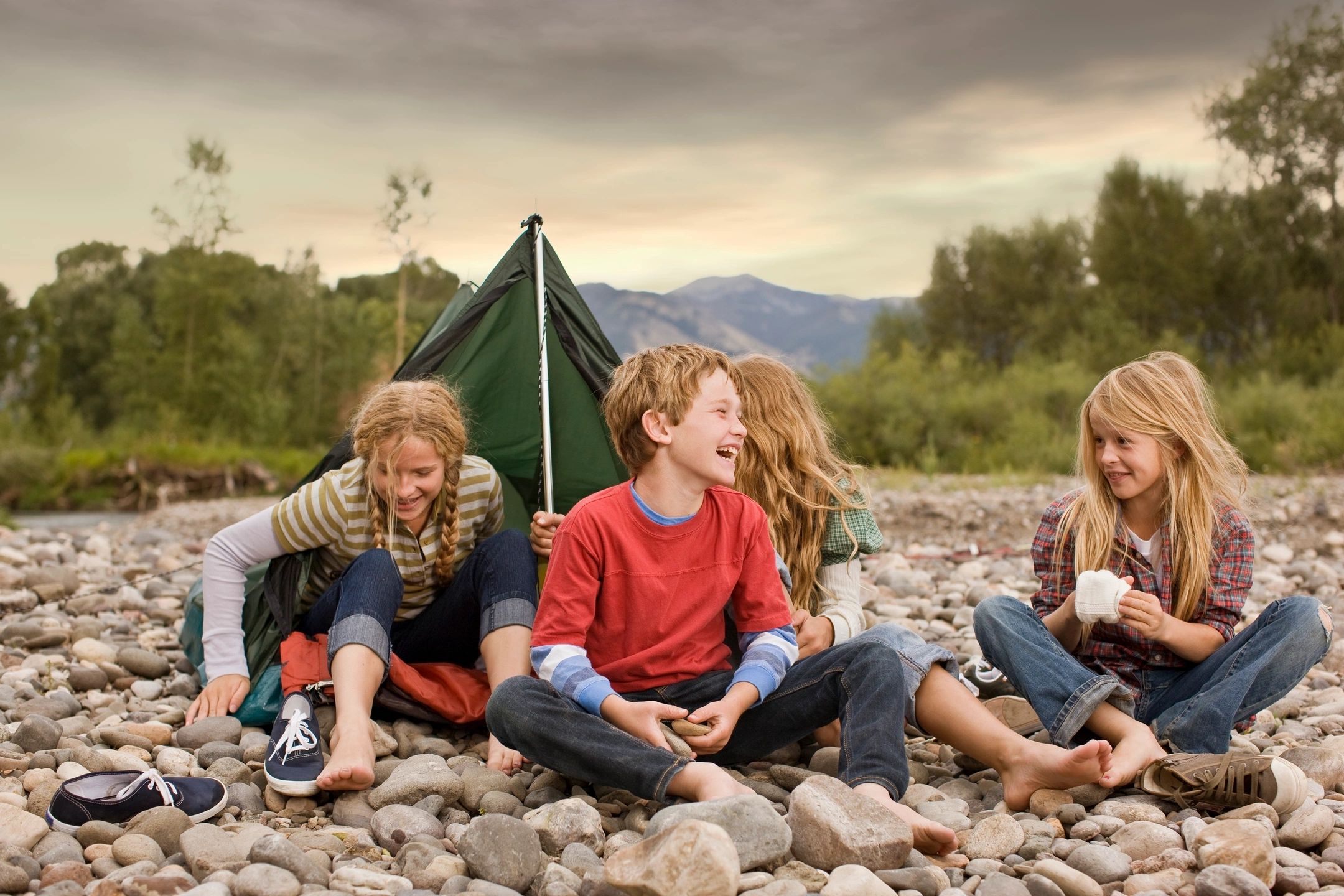Introduction
Camping with kids is a fantastic way to introduce them to the wonders of nature and create cherished family memories. As an experienced camping enthusiast and parent, I’m thrilled to present the ultimate guide to camping with kids. From making camping fun for the little ones to engaging them in camp chores and safety lessons, we’ll explore the key strategies for an enjoyable and safe camping experience. Let’s embark on this adventure together and ignite the love for the great outdoors in your children!
- How To Make Camping Fun for Kids
Camping is an exciting opportunity for kids to explore, learn, and bond with their family. To make camping a blast for the little adventurers:
a. Plan Interactive Activities: Incorporate fun activities like nature scavenger hunts, storytelling around the campfire, stargazing, and outdoor games to keep kids engaged and entertained.
b. Bring Special Toys and Games: Pack a few favorite toys, books, or games from home to provide comfort and familiarity in the camping environment.
c. Embrace the Wild Side: Let kids get muddy, explore critters (safely), and experience the joy of roasting marshmallows over the campfire for s’mores.
- How To Engage Kids in Chores Around Camp
Camping offers a wonderful opportunity to teach kids responsibility and teamwork. Engage them in age-appropriate camp chores:
a. Set Up and Break Down: Have kids help pitch the tent, set up sleeping bags, and organize the campsite. Assign tasks that match their abilities, and make it a fun family effort.
b. Collect Firewood: Supervise kids while they gather small sticks and twigs for the campfire. Teach them about fire safety while they help prepare the fire pit.
c. Clean Up: Involve kids in picking up trash around the campsite and keeping the area tidy. Encourage them to leave no trace and respect nature.
- How to Engage Kids in Camp Cooking
Camp cooking can be a delightful family activity that fosters creativity and independence in kids:
a. Plan Simple Recipes: Opt for easy and delicious campfire recipes that kids can help prepare, like foil-wrapped meals or skewers. Let them participate in chopping and stirring (with proper supervision).
b. Create a Camp Chef: Designate one of the little campers as the “camp chef” for a meal, allowing them to take charge and showcase their culinary skills.
c. Make Breakfast an Adventure: Prepare a special breakfast, like pancakes or breakfast burritos, that kids can cook over a portable camping stove.
- How to Teach Camp Safety to Kids
Camping safety is paramount, and teaching kids the rules ensures a worry-free experience:
a. Set Boundaries: Establish clear boundaries around the campsite and teach kids to stay within sight and earshot.
b. Identify Poisonous Plants: Teach kids to recognize and avoid poisonous plants like poison ivy and oak.
c. Buddy System: Encourage kids to use the buddy system, always having a companion when exploring.
- How to Teach Fire Safety to Kids
Campfires are a highlight of camping, but it’s crucial to educate kids about fire safety:
a. Keep a Safe Distance: Teach kids to maintain a safe distance from the campfire and not to run or play around it.
b. Put Out the Fire: Demonstrate how to properly extinguish the fire using water and ensure it is completely out before leaving the campsite or going to bed.
c. No Playing With Matches: Emphasize that matches and lighters are tools for adults only and should never be used as toys.
- Use of First Aid Kits
Accidents can happen, so it’s essential to have a well-stocked first aid kit and know how to use it:
a. Basic First Aid: Teach kids basic first aid skills, like cleaning and bandaging minor cuts and scrapes.
b. The Importance of Reporting: Instruct kids to inform an adult if they or someone else gets hurt so that proper care can be provided.
c. Prepare for Allergies: If any family members have allergies, explain the importance of carrying necessary medications like epinephrine injectors.
Frequently Asked Questions
- At what age can I take my child camping?
You can start camping with your child as early as infancy. However, it’s essential to consider their needs and comfort level when planning the trip.
- What if my child is afraid of bugs or wildlife?
Reassure your child that bugs and wildlife are a natural part of the outdoors. Educate them about harmless creatures and safety measures to avoid any potential threats.
- How do I handle emergencies while camping?
Have a plan in case of emergencies, including knowing the nearest medical facilities and having a charged phone or emergency communication device.
Conclusion
Congratulations! You now have the ultimate guide to camping with kids, ensuring an unforgettable and safe family adventure in the great outdoors. By making camping fun, engaging kids in camp chores and cooking, and teaching them essential safety skills, you’ll create memories that will last a lifetime. Embrace the wonders of nature, ignite the spirit of adventure in your children, and experience the joy of camping together as a family. Happy camping!
